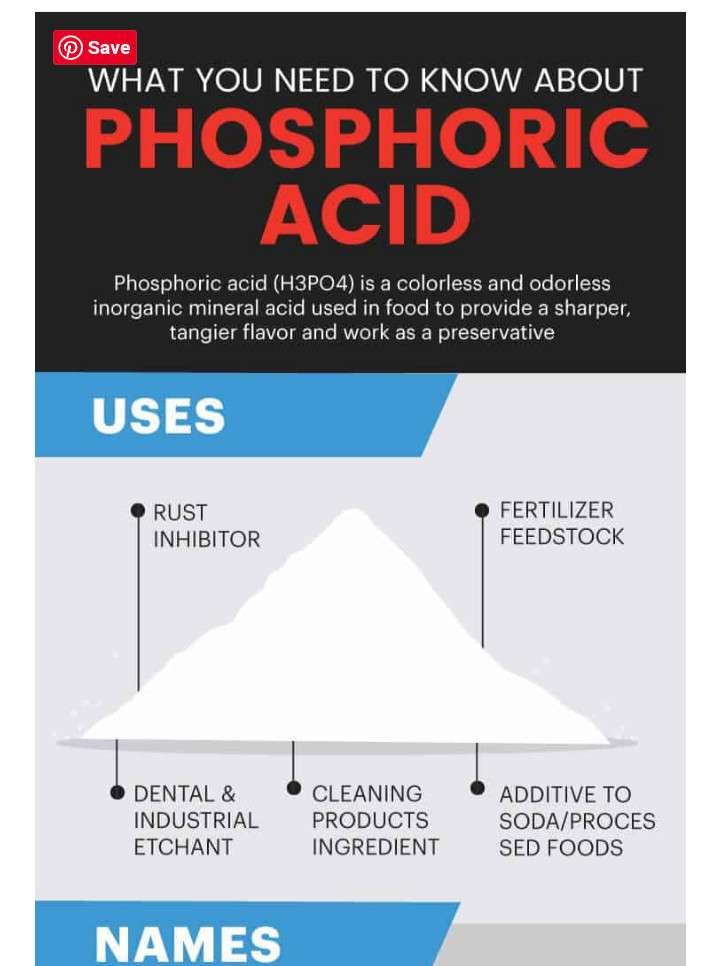IVF BMI over 30-Weighing the Fertility Benefits Against the Risks
Having a high body mass index (BMI) during pregnancy can have a major impact on your health and your baby’s health. Knowing about these complications and risks moving forward, you will be more prepared. With an IVF BMI over 30 your health risks increase exponentially.
IVF BMI Over 30?
A high IVF BMI Over 30 during pregnancy has been linked to an increased risk of various health problems for a baby, including:
- Congenital disorders

- Being significantly larger than average at birth (fetal macrosomia)
- Growth problems
- Childhood obesity
- Cognitive problems
- Developmental delay
Time to Check Your BMI?
Have you had a physical exam lately? A yearly check is one of the best ways to keep your health and well-being in check. During this visit, your doctor will assess your body mass index (BMI). This is a digit number. It indicates your level of health. You needn’t worry about this unless you BMI is higher than normal.
What Does My BMI Mean?
If your BMI is 30 or above, it is time to take your health more seriously. To determine your BMI, divide your weight in pounds by your height in inches squared and multiply by 703. You can also divide your weight in kilograms by your height in meters squared. There are four different BMI levels as follows:
- Below 18.5 means you are under weight
- 18.5 – 24.9 means you are standard range
- 25.0 – 29.9 means you are overweight
- 30.0 and higher you are obese (red zone)
Promoting a Healthy IVF BMI Pregnancy
The best way to prepare for a healthy IVF BMI pregnancy is to get good prenatal care for you and your baby. Seek support from your
family and friends. In addition:
- Drink at least 1.5 liters a day of water

- Focus on eating nutritious foods
- Keep plenty of health snacks on hand
- Enjoy whole foods plant-based for optimal health
- Add whole grains, oats, quinoa, lentils, chickpeas
- Blue berries, raspberries, pomegranates, strawberries (antioxidants)
- Fresh fruits, and dark, green leafy vegetables (spinach, kale)
- Take prenatal vitamins
- Moderate exercise regularly
- Get plenty of rest (8 hours)
- Avoid alcohol, drugs, and smoking
- Cut back on caffeine
- Get vaccinated
- Check your BMI for IVF
Why is There a BMI for IVF?
BMI plays a role in helping a fertility specialist decide the healthiest treatment plan for any individual. For IVF treatments, patients are usually advised to maintain a BMI between 18.5 and 40. It should be noted, however, that high BMI is not always equivalent to more body fat. Muscle mass factors into BMI as well. If you plan an IVF in the near future, keep your BMI in normal range if possible.
Risks of IVF with a High BMI
Yes. You can get an IVF with a higher BMI. However, a high BMI harms fertility by inhibiting regular ovulation. Even in women who regularly ovulate, the higher BMI, the longer it takes to become pregnant. Some research also suggests that a high BMI increases the risk of unsuccessful in vitro fertilization (IVF). Also, getting pregnant is more difficult.
Pregnancy and High BMI
A high BMI during pregnancy increase the risk of various pregnancy complications including:
- Miscarriage, stillbirth, and recurrent miscarriage
- Gestational diabetes
- A pregnancy complication characterized by high blood pressure
- Signs of damage to another organ system, most often the liver and kidneys (preeclampsia)
- Heart problems
- Sleep apnea
- The need for a C-section and the risk of C-section complications
- Wound infections.
What IVF Patients Need to Know?
Patients need to do their research prior to undergoing IFV treatment. They need to find the most qualified IVF specialist. The preparation for IVF is of utmost importance.
How to Prepare for IVF?
Before you begin a cycle of IVF using your own eggs and sperm, you and your partner will likely need various screenings, including:
- Ovarian reserve testing
- Semen analysis
- Infectious disease screening
- Practice (mock) embryo transfer
- Uterine cavity exam
- Stimulation of ovaries
What is the Success Rate of IVF Procedure?
IVF success rate varies with age. Women 35 and younger will have a 30-50% success rate per cycle and 80% or better after three cycles. Conversely, women over age 42 have 5% success rate per cycle and 10% after three cycles. When donated eggs are used, success rates per cycle rise to 60%. However, the success rate is contingent on your health conditions.
What are the Health Conditions for IVF?
IVF can be done even if you have certain health conditions. For example, IVF is a viable option if you or your partner has: 
- Fallopian tube damage
- Blockage makes it difficult for an egg to be fertilized
- An embryo to travel to the uterus
- Ovulation disorders
Cost of IVF Treatment
On average one cycle of IVF will set you back $12,000. However, basic IVF costs as much as $15,000 and as low as $10,000 depending on where you are treated. Additional cycles average roughly $7,000 per cycle.
While basic IVF costs around $12,000, if you need additional assisted reproductive technologies, the cost will be higher. For example, ICSI (Intracytoplasmic Sperm Injection) treatment (single sperm is injected directly into an egg) may be an additional $1,000 to $2,500. Genetic testing of embryos, or PGT, may be around $3,000 or more. PGT is Preimplantation Genetic Treatment. You also need to prepare for your IVF transfer.
How to Prepare for IVF Transfer?
Some of the main things to consider when you prepare for an IVF consultation is to seek out the best, recommended endocrinologist. Oftentimes, your primary medical practitioner can refer you to someone in your medical and/or insurance network. Other ways to prepare are as follows:
- Stock up on positivity, Inspiration, and humor. Yoga meditation also helps
- Eat healthy foods
- Stay hydrated with electrolytes (other than Gatorade)
- Chillax, listen to soft music (Netflix. Hulu, Prime TV)
- Warm the Abdomen BEFORE Your Transfer
- Avoid High-Impact Exercise and Heavy Lifting
- Use Daily Fertility Pressure Point Activation
What is the Highest BMI Limit for IVF?
The ideal BMI for getting pregnant, either naturally or through IVF, is between 19 and 25, typically. Also, IVF is less successful in women with a BMI over 30. High BMI associated with anesthetic risks during egg collection. Moreover, pregnancy complications include diabetes and high blood pressure. Obesity and infertility bring up additional medical challenges.
Case Study: IVF BMI Over 30 and Infertility
Despite the increase of obesity in the United States, more and more patients struggling with this predicament, seek infertility care. High risk individuals must consider the surgical risks. Are “high body mass index (BMI) patients at risk in the IVF (egg retrieval) setting?” Harvard University as some answers.
Harvard University Class III and Class IV Studies
A Harvard University Study took on the challenge of this study. What they found was astounding. The study consisted of two subsets:
- Class III BMI 40-49.9 kg/m sq
- Class IV BMI 50 or greater
The study consisted of 144 patients with a BMI of 40 kg/m sq or greater compared to 1,016 age-matched women with normal, overweight, and obese BMIs. Major complications were uncommon across all groups. However, there were minor complications among the Class III and Class IV patients. Subsequently, obese patients had more frequent diagnoses of:
- Gastroesophageal reflux disease
- Hypertension

- Diabetes
- Asthma
- Sleep apnea
These patients were more likely to require more intravenous sedation medications, have longer egg retrieval procedures and require transabdominal egg retrieval.
IVF BMI Retrieval Success
The authors of this study, ironically, conclude that egg retrieval procedures can safely be performed for patients with BMI greater than 40 kg/m sq. However, with the increased anesthetic requirements, longer procedure times and frequency of minor complications, there should be “the presence of adequate personnel, training, and equipment to perform basic and emergency airway management).
IVF BMI Over 30 Frequently Asked Questions
What is IVF treatment and how does it work?
In vitro fertilization is one of several techniques available to help people with fertility problems conceive a baby. During IVF, an egg is removed from the women’s ovaries, and it is fertilized with sperm in a laboratory. The fertilized egg, called an embryo, is then returned to the woman’s womb to grow, and develop. One cycle of IVF takes about two months. The process is not painful.
What to Expect during the IVF Process?
- 1) You can expect ovulation induction during IVF
- 2) At the start you’ll begin treatment with synthetic hormones to stimulate your ovaries to produce multiple eggs
- 3) Sperm retrieval
- 4) Fertilization
- 5) Embryo transfer
What is IVF pregnancy?
IVF involves several steps -ovarian stimulation, egg retrieval, sperm retrieval, fertilization, and embryo transfer. The 3 main approaches to IVF that involve no, or fewer drugs are natural cycle IVF, mild stimulation, and in vitro maturation (IVM).
What is IVF success rate?
The latest report from 2021, show that 55% of IVF procedures in women ages 35 and under resulted in a live birth. Mothers under 30 have a 44% chance of a live birth in their first IVF cycle. Those under 30 have a live-birth rate of 69% to 92% after 7 cycles. Women aged 40-44 have an 11% chance of a live-birth rate in their 1st IVF cycle. When you complete 7 cycles live-birth chances increase to 21% to 37%
What does IVF stand for?
In Vitro Fertilization.
What type of treatment is it?
It is for infertility. It helps women have a baby.
Type of procedure?
It is a minimally invasive procedure.
Recovery time?
Recovery time is about one day.
Duration?
It takes less than 5 minutes.
How long is my hospital stay?
Not typically needed
How to prepare for IVF process?
Your doctor needs to know when you are in ovulation. You can chart temperature, or they may prescribe birth control pills during the cycle before treatment. This will improve the chances of success and decrease your risk of ovarian hyperstimulation syndrome. After you ovulate, your doctor will start you on medications to stimulate ovulation.
When can I travel after IVF transfer?
It is okay to travel from the time the embryo transfers until the time of the pregnancy test. There is no evidence that travel impacts IVF pregnancy success rates. If you are having and embryo transfer, you can usually travel on the same day.
How long does it take for IVF start to finish?
It can take up to six weeks to complete a cycle of IVF from start to finish, and once your embryo transfer is completed.
Final Take Home
For the most part, becoming a mother, is still one of the most important events in the life cycle. Even though society assumes that healthy, fit females are more attractive during natural section, women with a BMI over 30, 40, or 50 want to have children too. In fact, many are choosing to undergo in vitro fertilization. However, these women must weigh the overall benefits against the risks. Are you interested in having more conversation about this top? If so, you can get in touch with me by email or leave me a comment in the space provided below. I look forward to having a chat with you. Wishing you a Happy Thanksgiving.
Rachele, Founder 
(w) mybluegenes.com (e) rachele@mybluegenes.com





Interesting article! Thanks for sharing.
Dee,
Thank you for reading my post and making a comment. Feel free to share this article with someone you know who may be interested. In the meantime, have a wonderful holiday season.
Rachele
Dee,
Thanks for reading my post.
It is an honor to have a comment from someone with your influence.
Have a wonderful, joyous Holiday.
Rachele
Can you be more specific about the content of your article? After reading it, I still have some doubts. Hope you can help me.
Hi there,
I am having a few technocal gliches right now and I will get back to you as soon as I can.
Rachele
Your article helped me a lot, is there any more related content? Thanks! https://www.binance.com/en-IN/register?ref=UM6SMJM3
Here is a link: https://yourivfjourney.com/high-bmi-what-ivf-patients-need-to-know/
Rachele